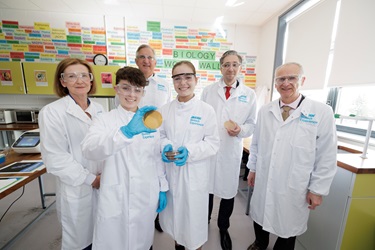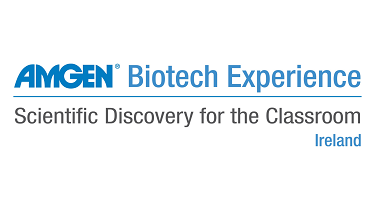First ACORN event at Barretstown a great success
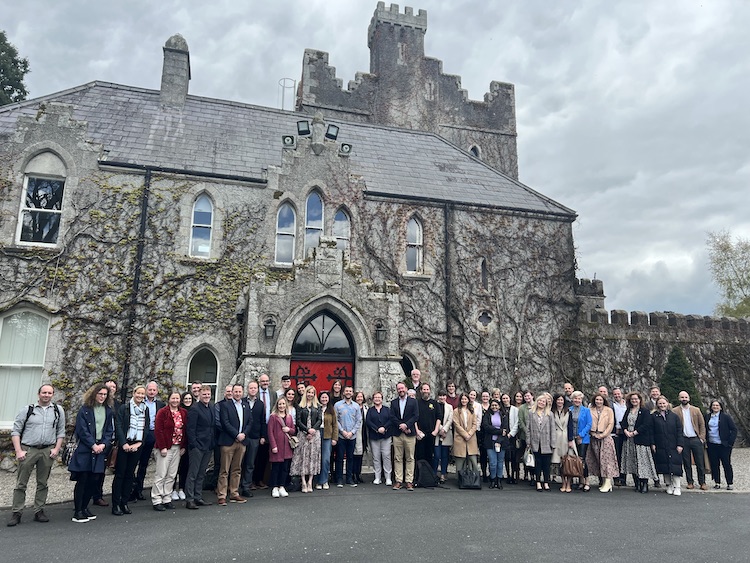
On Tuesday, April 25, 2023, the first gathering of ACORN (All-Ireland Children's Oncology Research Network) took place at Barretstown, Co. Kildare. Organised by SBI’s Prof. Jonathan Bond, Dr. Melinda Halasz and Ulster University’s Dr. Kyle Matchett the all-day event included talks, break-out sessions and networking opportunities. The organisers sat down with us afterwards to give some perspective on the meeting and ACORN as a whole.
Abbreviation Key:
Jonathan Bond (JB)
Melinda Halasz (MH)
Kyle Matchett (KM)
Q: Congratulations on a successful event! Can you tell us a bit about ACORN, how it began and what you hoped to achieve in this first meeting?
JB: Thank you! We set up ACORN in 2022. This was prompted by recent efforts to increase cross-border collaborations in scientific research, including moves towards creating an All-Island Cancer Research Institute.
We strongly feel that childhood cancer should be part of these kinds of initiatives. Children are historically neglected in cancer research -- only about 4 percent of government funding goes to childhood cancers, so this is a severely neglected area. Childhood cancers are also very different from those seen in adults, so there is a need for specific approaches that at the moment are lacking.
Aside from the recent initiatives, there are many good reasons to improve cross-border collaborations, given our complementary skills and clinical integration. We felt it was timely to get all the main stakeholders from across the island together for a day. We were lucky enough to be successful in our application for the Irish Cancer Society Translational Cancer Networking Award, and that gave us the funding to go forward. We also have fantastic partners in Barretstown who have been very involved in our efforts to engage and involve young people in research and hosted us at their wonderful facilities. John Mitchell in particular really helped us on the day (thanks Mitch!).
MH: One of our main goals in ACORN is to facilitate research and clinical integration in the Paediatric Oncology space, and foster collaborations. Therefore, we wanted to bring together childhood cancer researchers and clinicians from Ireland and Northern Ireland. We planned the agenda for the first ACORN meeting accordingly. We had a research-focused session with flash talks from 14 research groups followed by clinical overviews from both sides of the border, and we closed the day with sandpit discussions with researchers and clinicians. Our first ACORN meeting was a great success with more than 60 attendees.
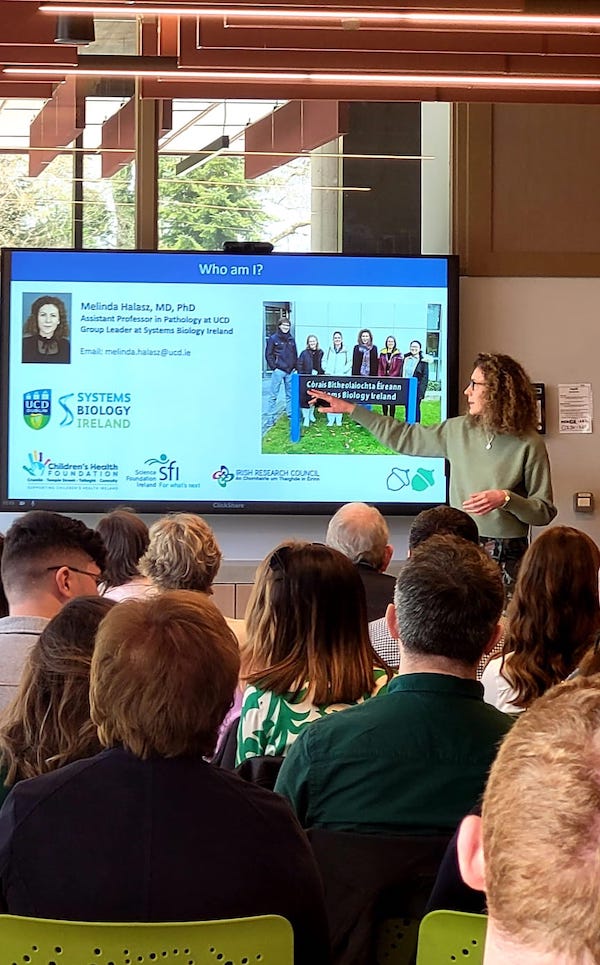
Q: Who attended and who spoke on the day?
JB: We had clinical teams, researchers, patients, parents and charities from Ireland and NI. The aim of the programme was to give everyone an overview of the scientific research activity across the island, and to highlight strengths and potential collaborations.
We started with some introductory remarks from myself and then an “icebreaker” session, which got the meeting off to a nice informal start. This was followed by a talk from Prof. Liam Gallagher [UCD Conway] about the plans of the All-Ireland Cancer Research Institute.
Then we heard from a patient representative, Karl Corcoran, whose spoke about “The connection between cancer research and the patient.” I think this was a really important input because he highlighted the real-world experience of a young person who has cancer, and the challenges that they face.
We then had a series of flash talks from childhood cancer scientists from both sides of the border, which gave a great overview of the range and depth of current research.
Then, in the afternoon, we had talks from a parent advocate, Alan Pearson from Childhood Cancer Ireland who gave a really powerful talk about his daughter, Clíodhna, who was a childhood cancer patient. Prof. Owen Smith and Dr Patricia O’Hare gave overviews of the clinical landscape, priorities and challenges on both sides of the border. We finished with “sandpit sessions” where we had small groups to discuss a variety of topics.
Q: Why was it so important to have representatives from so many different groups?
JB: We think it’s critical that all the key voices are included in ACORN. Everyone has their own specific inputs and in deciding our priorities, it’s really important to hear from the people who are the most affected by childhood cancer.
Despite it being a small world, there’s actually very limited opportunities for clinicians, patients, parents, charities, etc., to interact directly with the scientific researchers. I think it’s a really big barrier to putting our best foot forward for scientific research. We do have lots of advantages on the clinical side in treatment being centralised in two centres on the island, and there’s a big opportunity for scientific activity to be integrated alongside this.
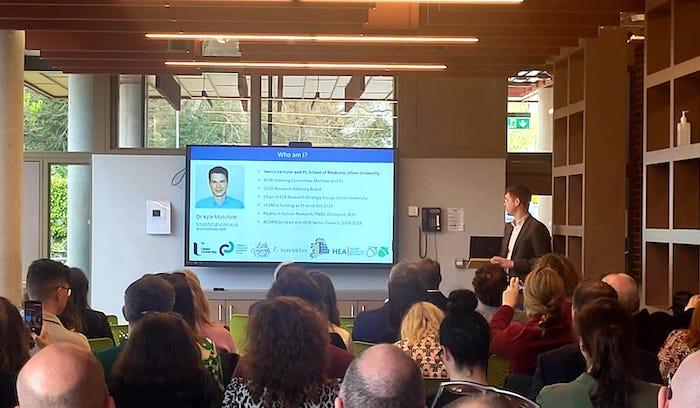
Q: Why do you think cross-border collaborations are particularly important in childhood cancer research right now?
KM: While the island of Ireland is a relatively small place, we are home to some of the most talented scientists and clinicians globally, especially in the life sciences. Bringing together expertise in childhood cancer research is important to share ideas, build a critical mass of talent and leverage our respective positions within the UK and Europe for strategic initiatives. As well as pioneering research, we have excellent clinical colleagues in Northern Ireland and Ireland, centred in Belfast and Dublin. Bringing together our clinical and research strengths, as well as patient/parent advocates and charity stakeholders, will create a strong, multidisciplinary group, which we believe will be agile in creating an ambitious vision for improved cancer care for children in Ireland.
MH: Childhood cancer is rare, and research in this area was previously underfunded. In recent years, Irish, Northern Irish and European cancer strategies (e.g., the EU Mission Board for Cancer) has specifically highlighted the importance to improve outcomes and reduce treatment-related morbidities for children, adolescents and young adults with cancer. I hope that collaborations though ACORN will lead to many successful research projects that can lead to clinical trials.
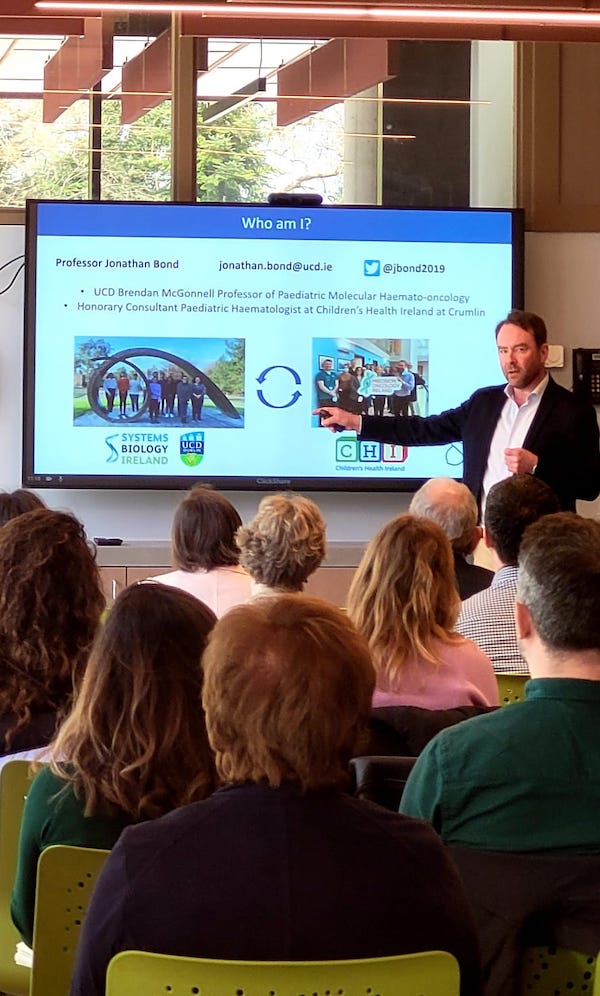
Q: Was there anything that surprised you about this first event?
JB: We had a really excellent take up of invitations. Virtually everyone turned up on the day, which I think is pretty unusual for these types of events, so that was a pleasant surprise, in particular as so many had made the long journey down from Northern Ireland.
And while it wasn’t necessarily a surprise, it was very exciting to see the level of engagement in the activities, and the positive and enthusiastic atmosphere that we had on the day.
MH: In addition to research and clinical integration, the patient voice is extremely important. The talks on the Patient's and Parent's perspective from Karl Corcoran and Dr Alan Pearson were the most inspiring to me.
Q: What do you feel like the first ACORN meeting has already helped achieve?
KM: Firstly, as an Organising Committee, I think it is important to say that we were really delighted with the level of interest in the meeting. While we had an idea that people would be keen to come together, we were pleasantly surprised by the level of energy and positive responses ahead of the event. The meeting has brought people together and helped attendees to appreciate that there are a lot of people working in childhood cancer research in Ireland. I also think that the high standard of the scientific and clinical talks and inspiring engagement with parent and charity stakeholders showed how much potential there is to build something really exciting together. The responses from attendees were extremely positive. I also want to thank Barretstown – the venue was fantastic, and the various spaces facilitated our conversations.
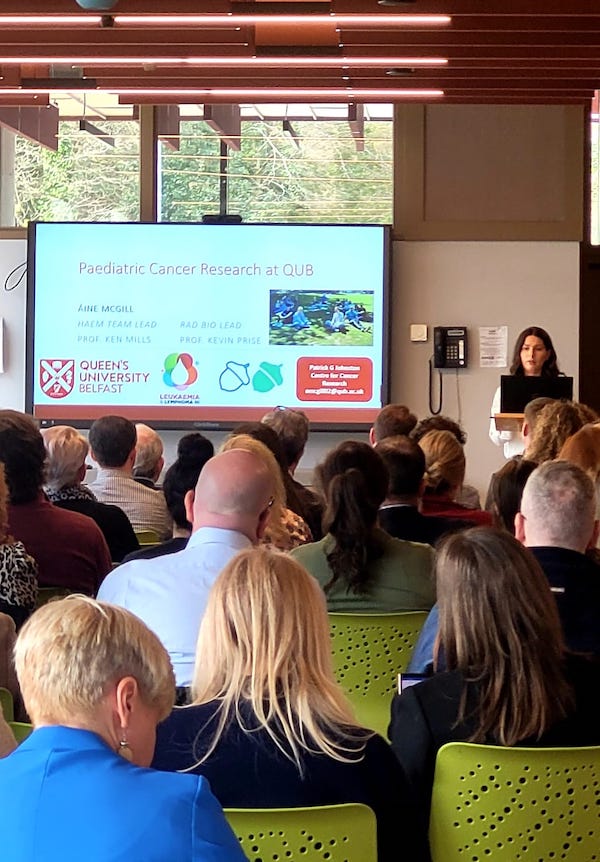
Q: What do you hope to focus on in future meetings and what is the vision for ACORN down the road?
JB: We have lots of ideas that we’re working through at the moment. I think ACORN can be a real focus for childhood cancer research across the island, and we want to make the most of the potential and energy that was evident during the networking event. The main thing is that there’s a huge amount of will and optimism that we can build something important together. Exciting times!
